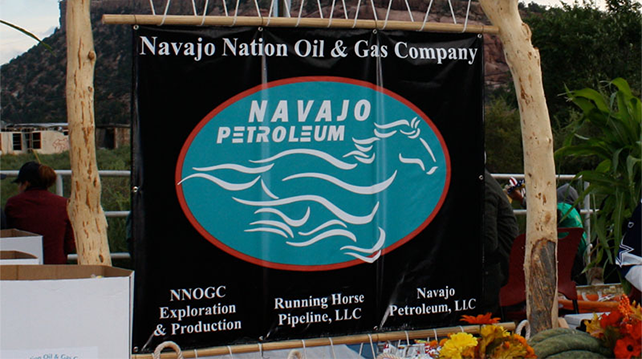
Guest Column: Robert Joe: New leadership was held back by old politics

Before coming to Window Rock, I spent 22 years managing and improving the performance of Fortune 200 companies then spent several years as a management consultant.
Last June, when I was asked by the current board to become the CEO for Navajo Oil & Gas Company, I was reluctant — at first. However, this was an opportunity to return and help Navajo optimize the use of our natural resources. While I have a background in engineering and finalizing my master’s in energy business, I was an outsider to Window Rock politics.
In my first week at NNOGC, I realized the drastic and dire position of the company. NNOGC’s operations and finances were severely stressed; the company was over-leveraged with more debt than incoming revenue; the company’s credit line of $170 million was nearly maxed out; the Denver office was draining profits. I had always wondered why NNOGC was not a multi-billion dollar corporation while in business for two decades.
The Southern Ute — a 1,400 member tribe — started its energy business in 1992, a year before NNOGC started. Today Southern Ute has a Growth Fund valued at approximately $15 billion (nearly 10 times the Navajo Nation’s $1.6 billion permanent trust fund) and they are operating multi-billion dollar companies. So what’s different?
The answer is simple. Southern Ute Tribal Councilmen Howard D. Richards, Sr. said, “The secret is separating government from business and recruiting qualified people with a proven record of business leadership.”
Harvard researchers Stephen Cornell and Joe Kalt, spent 26 years researching what sustains “self-determined, social and economic development” among American Indian nations. They concluded that successful Indian businesses thrive when its daily affairs are kept away from political interference, “In the long run, inserting politics into day=to-day business decisions invariably undermines efficiency and productivity, saps the resources of the organizations, and runs tribal enterprises into the ground.”
After taking the leadership at NNOGC, I recruited qualified and talented staff and advisors to make changes. In one year we set record revenues, increasing profits and net assets while decreasing liabilities.
It was necessary for NNOGC’s charter to align with the reduction of 88 delegates to 24, including the number of oversight committees and shareholder representatives for the corporation. Therefore, the board had 18 separate meetings to discuss the proposed amendments to the corporate charter prior to November 2013.
Paul Frye and Louis Denetsosie drafted the amendments three years before I arrived. The board approved the proposed amendments on August 19, 2011 and again on August 20, 2012. Yet today, these two men fiercely oppose their own amendments.
Things went wrong when the board members eventually realized the proposed charter amendments outlined new board qualifications that would leave them ineligible to sit on the NNOGC board. Some board members went against the collective decision and they are making every attempt to stop the approval of the charter amendments.
Ratification of NNOGC Federal Charter must happen because of the important message it sends to the banks and investors. It will also send a strong message that we had enough of the old way of business-as-usual.
The new charter opens up board nominations to all 110 Navajo Chapters including Navajos living off the reservation. Under the proposed amendments, a candidate must have a bachelor’s degree with industry experience, or skill-sets in relevant disciplines related to the corporation’s management and operations. It’s extremely rare for a Fortune 500 company to have board members with no business management or executive leadership experience.
Instead of considering the overall positive impact to the Navajo people, a few board members along with their legal counsels and a few council delegates are derailing the ratification of the revised charter so business-as-usual will prevail. That is self-serving and only benefits the few.
Because we stood up to the old way of doing Navajo business, my team and I have endured ruthless assaults on our character and integrity. My team did nothing wrong. We brought new strategies, business savvy ideas, sound ethics, and a driven passion to help our People. Rather than congratulate the team, the current leadership found creative excuses to fire them and then drag them through a so-called audit. What kind of people would do this?
I support a full and independent audit, not one that is orchestrated and manipulated by the current leadership who will direct the investigator to review only certain transactions. We know there are improprieties that occurred at NNOGC dating back to 2003. If they want the truth, then the forensic audit should go back far enough and include recent activities to uncover the mismanagement.
Navajo Nation Council must make a profound business decision that would positively impact the future of our economic prosperity. Instead of surrendering to old-school political pressure, the right decision for NNOGC, the Navajo Nation and the Navajo people is to ratify the charter amendments.
(Robert Joe served as CEO of Navajo Oil & Gas Company from June 2013 to May 2014. He is Kinyaanni clan born for Totsoni clan. He holds a degree in engineering from Arizona State University and a family man married for 24 years.)








 Highway 264,
Highway 264, I-40, WB @ Winslow
I-40, WB @ Winslow